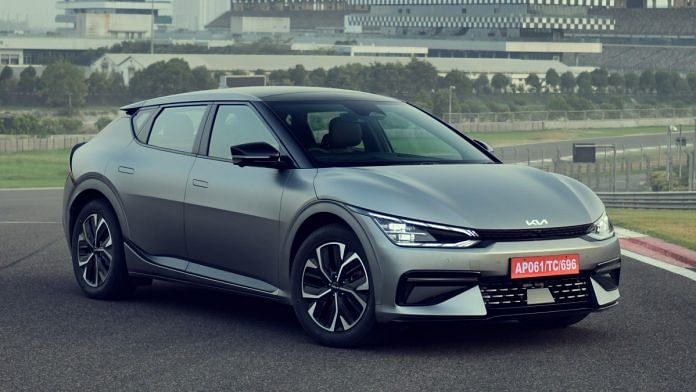Chances are that if you have gone to book a car in the recent past, the dealer has told you that you will have to wait for anywhere between six to nine months. In fact, when Mahindra recently announced their annual results for 2021-22, Rajesh Jejurikar, executive director, M&M, auto and farm sectors, said that waiting periods for the new XUV700 were topping two years in the case of certain specifications. And this is a problem that is across the board from entry-level models like the Rs 5 lakh Maruti-Suzuki Celerio, which has a waiting period of three months, to the Rs 1.5 crore Mercedes-Benz GLS, which is sold out for 2022.
It is clearly a sellers’ market right now. But why can’t manufacturers just ramp up production to meet the swelling demand? The problem, we are told, is shortage of semiconductors. Modern cars, and for that matter all modern vehicles, are no more just mechanical beasts. There are tens, and in the case of the most advanced vehicles, hundreds of semiconductors and sensors collecting and processing data. It isn’t just the fancy touchscreen infotainment system and digital display, the engine control module (ECM), which manages how your car drives, is also vital — to not just fuel economy but also towards managing emissions. The strict Bharat Stage 6 emission norms have meant that advanced processors are used even on entry-level two-wheelers now.
EVs and the processing power they need
One would suppose that this would make a convincing case to ditch the internal combustion engine and go electric. But there is a catch. Other than the most basic e-rickshaws, most electric vehicles actually need more processing power than petrol or diesel vehicles. This is required for the battery management software (BMS) that manages the cells in the vehicle to optimise everything — from how fast the vehicle can charge, to the maximum range, to keeping the Lithium-Ion batteries from overheating and damaging themselves.
However, Tesla’s Elon Musk and most other manufacturers believe that the semiconductor ‘crunch’ will be solved by next year.
But another shortage is on the horizon, that of critical parts for electric vehicles, starting with refined Lithium. Prices for the lightest metal on the periodic table have quadrupled in the past year from $16,000/ton to over $60,000/ton. This is in addition to the runaway price escalation of Nickel, prices of which have shot up so dramatically following the Russian attack on Ukraine that the London Metal Exchange had to suspend trading in it. And then, there are supply-chain bottlenecks for rare-earth elements such Neodymium, Cerium, Yttrium and Lanthanum that unless you are a scientist would have forgotten about from your high-school chemistry lessons. But these are vital components in electronics, albeit in vanishingly small amounts. Many of these rare earth minerals are only mined in China and that country is squeezing supplies.
This has led to several carmakers pointing out that there could be a massive shortage of everything from Lithium-Ion batteries to vital processing units for electric cars in the coming years. Carlos Tavares, chief executive officer, Stellantis, the carmaker formed by the merger of Fiat-Chrysler and Groupe-PSA, has stated that this shortage will last between 2024-2028, especially given the accelerated demand for electric vehicles across the world. Gill Pratt, chief scientist at Toyota Motor Corporation, has echoed these thoughts, arguing the supply-snags could threaten the electric vehicle revolution.
In India too, Kia Motors, which recently launched their first electric vehicle the EV6 in India, has admitted that there is a supply crunch. Michael Sohn, chief sales officer at Kia said that while the Korean carmaker will honour all 356 orders made before the launch of the EV and not just the 100 units that they had previously announced, in general, it will be a struggle for the carmaker as India will be ‘fighting’ other markets for units. And while Kia Motors has promised to bring a ‘Made In India’ electric vehicle by 2025, Sohn agreed that battery issues will be a concern, “our logistics and global supply chain people are working on the problem and I’m sure they can resolve it.”
Also read: Santro, the car that launched Hyundai in India, drives into the sunset. But shed no tears
Crisis for EV adoption
But Kia is part of a global carmaker (Hyundai Motor Corporation). Indian car and two-wheeler manufacturers privately admit that the battery shortage could actually see prices of electric vehicles go up. The price of a kilowatt-hour of battery, which stood at $1,200 in 2010, had dropped to $132 in the spot market by 2021 (with some contracts seeing prices as low as $100). The market has seen prices rise to around the $200-level already. With the battery pack constituting almost half the price of an electric vehicle, this presents a clear crisis for EV adoption. Already, electric vehicles such as the Tata Tigor and Nexon have a 50 per cent price premium on their petrol-engine counterparts.
And while the operating costs of electric vehicles are unbeatable, a Tata Tigor EV I used for a couple of weeks and charged at home gave a running cost of just over a rupee a kilometre against Rs 6-7 for the petrol variant, the question about how much extra buyers are willing to pay for electric vehicles remains. And more importantly, how long are they willing to wait? Mahindra’s Jejurikar said that despite a two-year waiting period for the XUV700, the cancellation rate has just been 10-12 per cent. But that could be a function of the fact that no carmaker has any cars to sell. Once the semiconductor crisis eases up, things could change dramatically.
@kushanmitra is an automotive journalist based in New Delhi. Views are personal.
(Edited by Anurag Chaubey)



